NFTs
All About NFT Development Industry In 2024 And Its Intriguing Importance In The Blockchain World
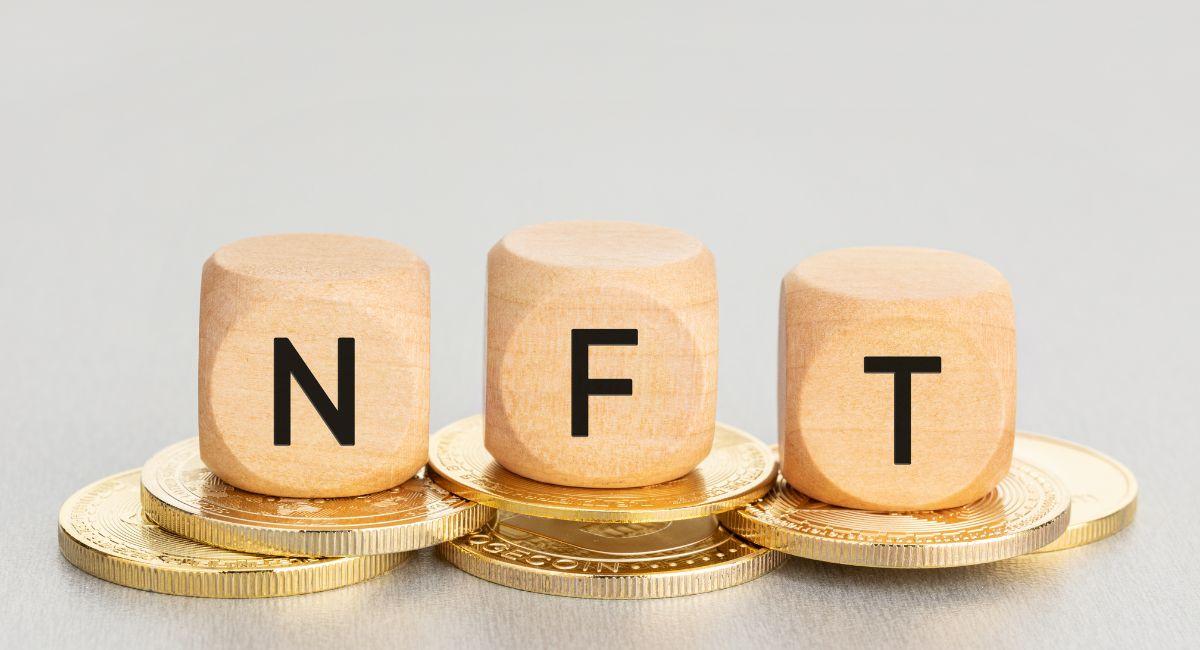
In the ever-evolving landscape of blockchain technology, non-fungible tokens (NFTs) have emerged as a revolutionary force, transforming the way we perceive and interact with digital assets. As we approach 2024, NFT development is set to bring about substantial changes, influencing both the virtual economy and the digital art space. This article delves into the key
In the ever-evolving landscape of blockchain technology, non-fungible tokens (NFTs) have emerged as a revolutionary force, transforming the way we perceive and interact with digital assets. As we approach 2024, NFT development is set to bring about substantial changes, influencing both the virtual economy and the digital art space. This article delves into the key aspects that will shape the future of NFTs, offering insights into technological advancements, market trends, and the intriguing importance of NFTs in the blockchain world.
Key Takeaways
- NFTs are poised to revolutionize various industries by 2024, offering new opportunities for digital ownership and interaction.
- Technological advancements, including AI and machine learning, are set to enhance the functionality and appeal of NFTs.
- The NFT marketplace is evolving, with improved user experiences, transaction mechanisms, and integration with other platforms.
- Enterprises are increasingly adopting NFTs for various use cases, driven by customization, scalability, and innovative solutions.
- Sustainability and regulatory considerations are becoming crucial in the NFT development industry, shaping its future trajectory.
The Evolution of the NFT Development Industry in 2024
The market has experienced its fair share of ups and downs since its inception and has fundamentally altered the landscape of digital ownership and art. As we enter 2024, the NFT space is not just about digital art anymore; it’s an evolving ecosystem ripe with opportunities and trends reshaping its future.
Key Milestones and Achievements
NFTs have experienced a “career progression” like no other. Starting from Rock JPEGs and pixelated delinquents, to fueling the next iteration of asset ownership and AAA games – with brands like Azuki and Pudgy Penguins even hitting entertainment and retail scenes – It’s been a whirlwind to say the least.
Technological Advancements
The fast-paced nature of the industry brings many opportunities for developers to make their mark. The trends point to a developing sector with a wider range of programs, from the incorporation of AI in collection curation to the growth of NFTs into gaming, decentralized finance (DeFi), and the metaverse.
Market Growth and Trends
In summary, a dynamic and diverse ecosystem is reflected in the changing Non-Fungible Token (NFT) environment in 2024. The trends point to a developing sector with a wider range of programs, from the incorporation of AI in collection curation to the growth of NFTs into gaming, decentralized finance (DeFi), and the metaverse. Adoption by corporations, the incorporation of social media, and the shift towards utility and ownership are key trends to watch out for.
Core Components of NFT Development
Smart Contracts and Blockchain
Smart contracts are the backbone of NFT development, enabling automated, trustless transactions on the blockchain. These contracts ensure that the terms of the agreement are met without the need for intermediaries. The blockchain provides a secure and immutable ledger, which is crucial for maintaining the authenticity and ownership of NFTs. In 2024, the integration of smart contracts with advanced blockchain technologies will continue to evolve, offering more robust and scalable solutions.
Token Standards and Protocols
Token standards like ERC-721 and ERC-1155 define how NFTs are created and managed on the blockchain. These standards ensure interoperability and compatibility across different platforms and marketplaces. The evolution of these protocols in 2024 will likely introduce new features and improvements, enhancing the functionality and versatility of NFTs. Developers must stay updated with these changes to leverage the full potential of NFT technology.
Security and Compliance
Security is paramount in the NFT development industry. Developers must implement stringent security measures to protect against hacks and fraud. Compliance with regulatory standards is also essential to ensure the legality and trustworthiness of NFT projects. In 2024, the focus on security and compliance will intensify, with new tools and frameworks being developed to address emerging threats and regulatory requirements.
The core components of NFT development are essential for creating a secure, efficient, and scalable ecosystem. As the industry evolves, staying abreast of technological advancements and regulatory changes will be crucial for success.
NFT Marketplaces: Features and Functionalities
NFT marketplaces are virtual shopping places or online spaces where users can purchase and sell NFTs. Unique features can distinguish your NFT marketplace from similar platforms and enhance its worth in the industry.
NFT Development for Enterprises
Enterprise Use Cases
The use of NFTs by corporations signifies a dramatic change in the way large companies see and use digital files for promotional activities, positioning, and engagement. Non-fungible tokens (NFTs) have developed as an effective tool for businesses to tokenize their computerized content, commodities, and private information, giving a unique and engaging approach to deepen interactions.
Customization and Scalability
NFT development offers enterprises the ability to customize their digital assets to fit specific needs. This customization ensures that businesses can create unique and branded experiences for their customers. Moreover, the scalability of NFT solutions allows enterprises to expand their digital offerings without significant overhead.
Challenges and Solutions
While the potential of NFTs is vast, enterprises face several challenges in their adoption. These include technological barriers, regulatory compliance, and security concerns. However, solutions such as robust smart contract development, adherence to regulatory standards, and advanced security protocols can mitigate these issues.
NFT Development is the process of making blockchain solutions that are tied to the use of NFT. Even though NFT Marketplaces and NFT Sales have become important ways to bring attention and money into the ecosystem, this trend is not limited to just those two tools. The Metaverse, which is like an updated version of the internet, is one of the most forward-thinking ideas for the future.
The Role of NFTs in the Metaverse
The metaverse idea is experiencing significant development, as seen by the revolutionary inclusion of Non-Fungible Tokens (NFTs), which play a critical role in structuring virtual worlds. NFTs, which are distinctive digital possessions validated using the blockchain process, are making a substantial contribution to the creation of immersive and linked digital worlds in the metaverse.
Virtual Real Estate
NFTs are transforming virtual real estate by enabling the ownership, buying, and selling of digital land and properties. This digital ownership is authenticated through blockchain, ensuring transparency and security. Virtual real estate in the metaverse is becoming a lucrative market, attracting investors and developers alike.
Digital Identity and Ownership
Because non-fungible tokens will be digital copies of your real-world possessions, many believe they will be crucial to the metaverse. Your online persona, also known as an “avatar,” is also at risk. With NFTs on a blockchain, gamers can better trade goods and skins. This ensures that digital identities and assets are unique and verifiable, enhancing trust and value in the virtual world.
Interoperability Across Platforms
NFTs into gaming, decentralized finance (DeFi), and the metaverse. Adoption by corporations, the incorporation of social media, and a focus on environmentally friendly strategies highlight the growing awareness of NFTs outside of the technological space. NFTs are being used by big businesses for advertising functions and by social media sites to improve user interaction.
In the relentless march of technological progress, non-fungible tokens (NFTs) emerge as powerful agents poised to reshape the very foundations of the virtual economy. Beyond the speculative allure, a closer examination reveals the profound impact NFTs are likely to exert on how we perceive, engage with, and transact with digital assets. Let’s delve into the transformative potential of NFTs and explore the multifaceted facets that herald an impending evolution in the digital landscape.
Future Trends in the NFT Development Industry
As we enter 2024, the NFT space is not just about digital art anymore; it’s an evolving ecosystem ripe with opportunities and trends reshaping its future. The fast-paced nature of the industry brings many opportunities for developers to make their mark. Here’s a few we think are worth looking out for.
AI and Machine Learning Integration
AI-curated NFT collections are becoming increasingly popular, offering personalized and dynamic digital assets. AI and machine learning algorithms can analyze user preferences and market trends to create unique NFTs that cater to specific audiences. This integration not only enhances the value of NFTs but also opens up new avenues for creativity and innovation.
Sustainability and Eco-friendly Practices
The environmental impact of blockchain technology has been a significant concern. In 2024, the focus is shifting towards more sustainable and eco-friendly practices. Developers are exploring energy-efficient consensus mechanisms and carbon offset initiatives to reduce the carbon footprint of NFT transactions. This trend is crucial for the long-term viability of the NFT market.
Regulatory Landscape
Regulatory concerns will play an important role in determining the future path of NFTs. Governments and regulatory bodies are increasingly scrutinizing the NFT space to ensure compliance with existing laws and to protect consumers. This evolving regulatory landscape will shape how NFTs are traded and developed, ensuring a more secure and transparent market.
Looking ahead, continuous education, regulatory concerns, and technical improvements will all play important roles in determining the future path of NFTs. The tendencies mentioned show a lively and developing ecosystem, implying that NFTs are more than simply a trend; they constitute an influential force with the capability to revolutionize how we view, trade, and engage with electronic assets in the coming years.
Investment Opportunities in the NFT Space
Venture Capital and Funding
Investing in NFTs presents an opportunity to capitalize on early adoption and potential growth in these markets. Transparency and authenticity are key benefits, as NFTs are made traceable and verifiable through blockchain records. This allows market participants to have clarity and assurance. With NFTs, investors can verify the ownership and provenance of the asset, which can result in increased value and reduced risk of fraud.
Risks and Rewards
The market has experienced its fair share of ups and downs since its inception and has fundamentally altered the landscape of digital ownership and art. As we enter 2024, the NFT space is not just about digital art anymore; it’s an evolving ecosystem ripe with opportunities and trends reshaping its future. The fast-paced nature of the industry brings many opportunities for developers to make their mark.
Long-term Potential
NFTs have become increasingly popular, drawing the interest of investors seeking potential financial gain. Of course, there have been some bumps in the road, and the market has not reached its previous peaks yet. However, NFTs are still firmly holding onto their niche, and plenty of NFT investors remain in the crypto industry.
The opinions section of blockchain magazine features diverse viewpoints on blockchain and cryptocurrency, encouraging healthy discussion and critical thinking. Leading authority in blockchain and cryptocurrency coverage.
The NFT space is brimming with investment opportunities that you won’t want to miss. From digital art to virtual real estate, the potential for growth is immense. Stay ahead of the curve and explore these opportunities in detail on our website. Don’t miss out on the next big thing in the world of NFTs!
Conclusion
As we venture into 2024, the NFT development industry stands at the cusp of unprecedented growth and transformation. The dynamic nature of NFTs, coupled with advancements in blockchain technology, promises to redefine digital ownership, art, and commerce. From innovative marketplaces to enterprise solutions, the potential applications of NFTs are vast and varied. Whether you are a developer, artist, investor, or enthusiast, the opportunities within the NFT space are boundless. Embracing this technology not only paves the way for new economic models but also fosters a more inclusive and decentralized digital world. The future of NFTs is not just promising; it is a testament to the limitless possibilities that lie ahead in the blockchain realm.
Frequently Asked Questions
What is NFT development?
NFT development refers to the process of creating blockchain solutions that utilize non-fungible tokens (NFTs). This can include creating smart contracts, developing NFT marketplaces, and integrating NFTs into various applications and platforms.
Why is NFT development important in 2024?
As we move into 2024, NFT development is crucial for advancing the digital economy and virtual art space. NFTs offer unique opportunities for digital ownership, secure transactions, and innovative use cases across various industries.
What are the core components of NFT development?
The core components of NFT development include smart contracts and blockchain technology, token standards and protocols, and ensuring security and compliance in all transactions and applications.
How do NFT marketplaces function?
NFT marketplaces are platforms where users can buy, sell, and trade NFTs. They feature user-friendly interfaces, secure transaction mechanisms, and often integrate with other platforms to enhance functionality and user experience.
What are some enterprise use cases for NFTs?
Enterprises can use NFTs for various purposes, including digital identity verification, virtual real estate, secure data sharing, and enhancing customer engagement through unique digital assets.
What future trends can we expect in the NFT development industry?
Future trends in NFT development include the integration of AI and machine learning, a focus on sustainability and eco-friendly practices, and evolving regulatory landscapes to ensure secure and compliant use of NFTs.
NFTs
RTFKT Announces Project Animus Reveal, Launches Egg Unboxing Event Amid Mixed Reactions | NFT CULTURE | NFT News | Web3 Culture
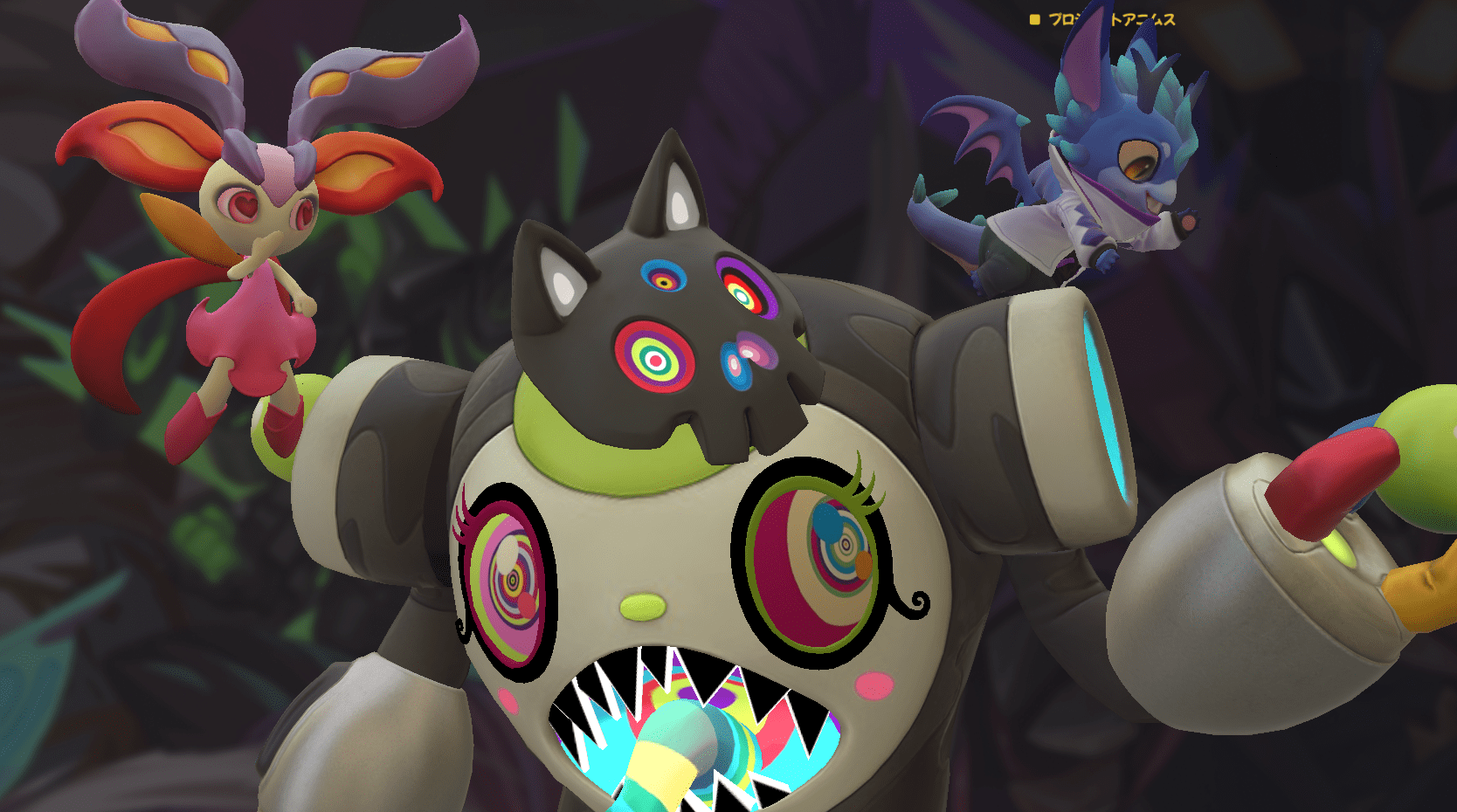
RTFKT, the innovative creator-led company renowned for its cutting-edge sneakers and metaverse collectibles, has officially unveiled its highly anticipated collection, Project Animus. This project marks a significant milestone in RTFKT’s journey, introducing a new dimension to its digital universe after a long period of development. However, the initial market response has been disappointing, with the revealed Animi trading at a floor price of 0.05 ETH, significantly lower than the eggs’ floor price of 0.09 ETH.
The Genesis of the Project Animus
Initially introduced in October 2022, Project Animus introduces a unique ecosystem of digital creatures called Animi. These Animi are designed to enhance Clone X’s avatars, offering an immersive and engaging experience for the community. The recent reveal showcased a diverse range of Animi species, each with distinct design traits and elemental attributes, breaking away from traditional trait-based rarity systems.
A New Digital Frontier: The History and Evolution of Project Animus
The Animus Project is RTFKT’s latest intellectual property, promising to revolutionize the NFT space with its unique digital creatures. The journey kicked off on October 8, 2022, with an interactive teaser event called “The Eggsperience.” This livestream event allowed attendees to explore a virtual Animus Research Facility, generating intrigue and excitement among the community.
Renowned artist Takashi Murakami played a significant role in the project, revealing the first Murakami-themed Animus creature, Saisei, on April 30, 2023. This collaboration added a layer of artistic prestige to the project, further elevating its status within the NFT community.
Animus Egg Incubation: A Journey from Egg to Animi
Clone X NFT holders had the opportunity to claim an Animus Egg until March 1, 2024. This was followed by the Animus Egg Hatching event, which ran from May 7 to June 4, 2024. During this period, holders of several RTFKT NFTs, including Clone X, Space Pod, Loot Pod, Exo Pod, and Lux Pod, were able to use a points-based system to increase their chances of hatching rarer Animi. The limited supply of Project Animus Eggs is capped at 20,000, with no public sale planned.
Mixed market reception
Despite the excitement and innovative features, the market reaction to the reveal of Project Animus has been lukewarm. Animi is currently trading at a floor price of 0.05 ETH, significantly lower than the eggs’ floor price of 0.09 ETH. This discrepancy has led to disappointment among some collectors who had high expectations for the project.
What Awaits Us: The Future of Project Animus
Following the reveal, RTFKT plans to release a collection of exclusive Animus Artist Edition characters. Holders of Clone X Artist Edition NFTs are guaranteed to get one of these special editions. The distribution will include 88 Special Edition Animus, with 8 Mythic (Dragon Sakura), 40 Shiny, and 40 Ghost Animus. The odds of receiving a Special Edition Animus are the same for all Eggs hatched, regardless of the points accumulated.
The remaining Animus characters will be distributed among unhatched Eggs, encompassing Special Edition Animus, as well as Cosmic Animus and Murakami Element from Generation 1, Generation 2, and Generation 3.
Conclusion
RTFKT’s Project Animus represents a bold step forward in the NFT space, combining cutting-edge technology with artistic collaboration to create an immersive and innovative digital ecosystem. However, the initial market reception highlights the challenges of living up to high expectations in the ever-evolving NFT landscape. As the project continues to evolve, it promises to deliver unique experiences and opportunities for its community, solidifying RTFKT’s position as a leader in the metaverse and digital collectibles arena.
Summary: RTFKT has unveiled Project Animus, introducing a unique ecosystem of digital creatures called Animi designed to enhance Clone X avatars. Despite the excitement, market response has been mixed, with Animi trading at a lower floor price than eggs. The project kicked off with an interactive event in October 2022, featuring collaborations with artist Takashi Murakami. Following the reveal, RTFKT will release special edition Animus characters. The total supply of Animus Eggs is limited to 20,000, with no public sale planned.
NFTs
The Olympics have reportedly ditched Mario and Sonic games in favor of mobile and NFTs

The long and historic partnership between Nintendo and Sega to create video games for the Olympics reportedly ended in 2020 as event organizers sought opportunities elsewhere.
Lee Cocker, who served as executive producer on several Mario & Sonic Olympics titles, said Eurogamer the International Olympic Committee let the licensing agreement lapse because it “wanted to look at other partners, NFTs and esports.”
“Basically, the IOC wanted to bring [it] “Turn inward and look for other partners so you can get more money,” Cocker added.
The 2024 Summer Olympics kicked off in Paris last week, but there were no Mario & Sonic games available in time for the event to begin – the first time this has happened since the original release in 2007 to coincide with the 2008 Beijing Summer Olympics.
Over the past two decades, there have been four Mario and Sonic adaptations for the Summer Olympics, as well as two for the Winter Olympics.
This year, instead of a Nintendo/Sega title, the IOC released Olympics Go! Paris 2024, a free-to-play mobile and PC title developed by nWay, which has worked on several Power Rangers games.
Olympics Go! allows players to compete in 12 sports and unlock NFTs from the Paris 2024 digital pin collection.
The original Mario & Sonic at the Olympic Games was announced in March 2007 and marked the first time the two mascots – once archrivals in the console wars of the 1990s – appeared together in a game.
NFTs
DraftKings abruptly shuts down NFT operation, leaving collectors panicking over vast holdings of digital tokens
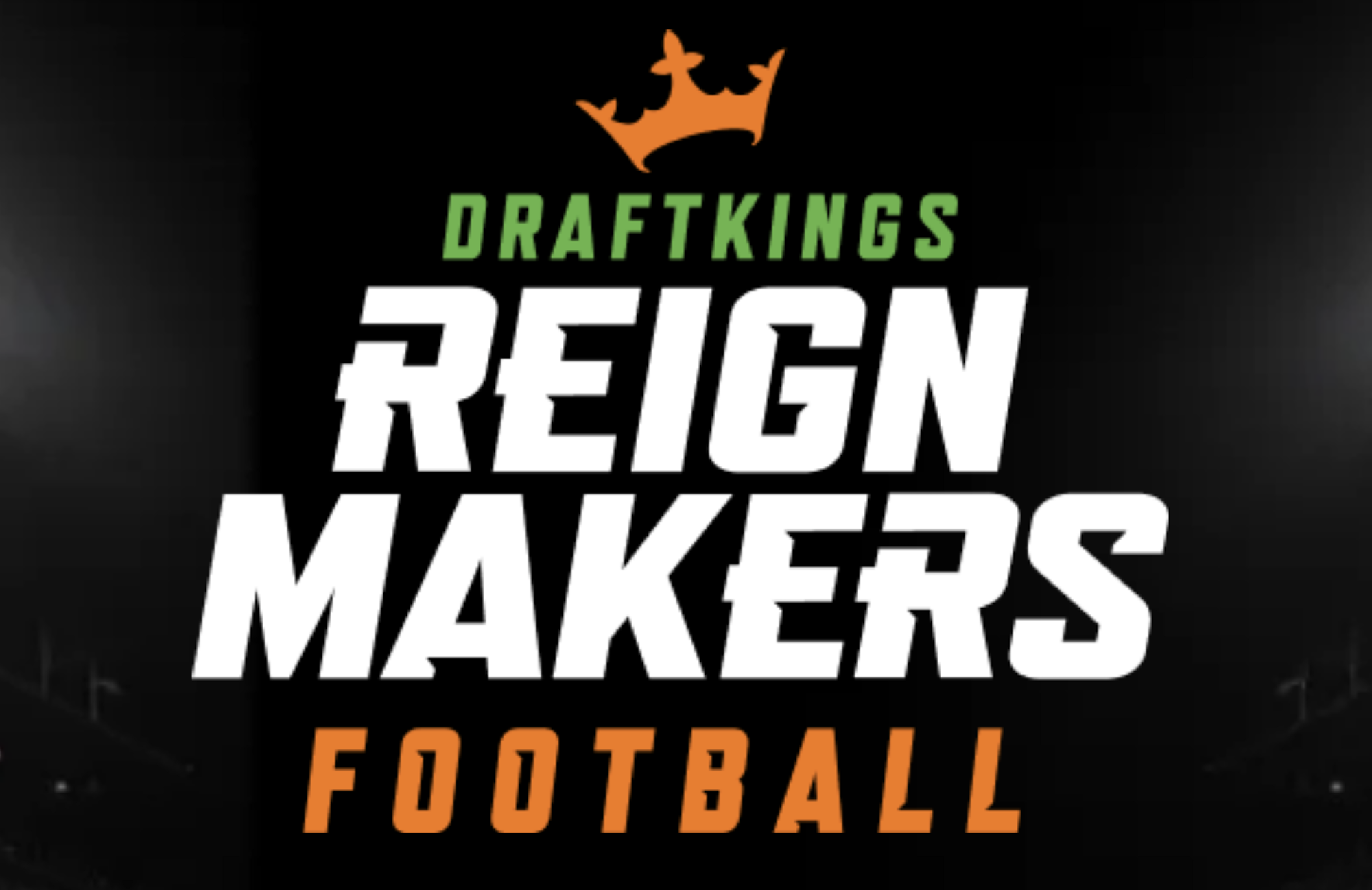
DraftKings, the daily fantasy sports and sports betting company, abruptly shut down a program called Reignmakers on Tuesday, posting a notice on its website and associated app and sending a mass email to some subset of its user base. Reignmakers, which the company launched in 2021, offered pay-to-play competitions in NFL football, PGA Tour golf and UFC mixed martial arts. The decision to eliminate the entire program, DraftKings says, was not made lightly but was forced “due to recent legal developments.”
DraftKings has yet to specify what “recent legal developments” are troubling its now-dead Reignmakers product. The company was sued in U.S. District Court in 2023 by a Reignmakers player named Justin Dufoe, who accuses the company of dealing in unregistered securities, taking advantage of relatively unsophisticated “retail investors,” and failing to market and support Reignmakers to the degree necessary to return to its users the financial benefits expected. DraftKings filed a motion in September to dismiss Dufoe’s complaint, but that motion was denied on July 2. A scheduling conference was held by the parties on July 29; Reignmakers was permanently shut down on July 30. A DraftKings spokesperson reached by Defector on Wednesday declined to confirm whether Dufoe’s complaint is the “recent legal development” that forced the company’s hand.
Users of the Reignmakers NFL product, who in recent days began murmuring on social channels about a notable lack of DraftKings activity so close to the start of the NFL preseason schedule, were caught off guard and, in some cases, devastated by the news. Members of the DraftKings Discord server, where all Reignmakers-related channels were abruptly shut down and locked following the announcement, flooded a general channel in various states of panic, sharing news, theorizing, lamenting, and, in some cases, openly worrying about whether it would be possible to recoup any decent fraction of the genuinely impressive sums of money they had invested in this DraftKings product.
Reignmakers is nominally a daily fantasy contest—users build lineups of players and then pit those lineups against other users’ lineups for cash prizes—but it’s actually a distributor of nonfungible digital tokens (NFTs), originated and sold by DraftKings, and then frequently resold on a dedicated secondary marketplace also hosted by DraftKings. At the lineup-building level, Reignmakers functions like a card-collecting game, with artificial scarcity driving the prices of the most coveted cards to insane, eye-popping heights. Reignmakers NFTs are tiered and offered in timed drops designed to heighten the sense of scarcity. A user can enter a lower-tier contest using a collection of NFTs that may have cost a few hundred dollars in total (or that were earned by purchasing random packs of NFTs that offer generally low odds of scoring top assets) and throw their lot in with hundreds of casual users competing for relatively unimpressive rewards. Random packs at the lowest tier would have prices as low as a few dollars; mid-tier cards—Star and Elite tiers, I’d guess—could cost a player upwards of $1,000.
But players interested in hunting down the biggest payouts, not just from games but from leaderboard prizes and other assorted prizes, would need to enter higher-tier games, and to enter the higher-tier games, a user’s collection needed to include higher-tier NFTs. DraftKings ensured that these cards were extremely scarce and could only be purchased directly on the marketplace at prices that any reasonable person would consider utterly insane.
For example, the highest-tier Reignmaker contests (called the Reignmakers tier, of course) have in the past been limited to listings with at least two of the highest-tier, rarest NFTs (also the Reignmaker tier) plus three NFTs from the second-highest tier (Legendary). NFTs at these tiers are expensive. Not just expensive in the way that, like, a steak dinner is expensive, but expensive in the way that buying even one of them should trigger a mandatory visit to a gambling addiction counselor, if not sirens and a straitjacket. Back in 2022a Reignmaker-level Ja’Marr Chase NFT from something called the Field Pass Promo Set could be purchased directly from the DraftKings Reignmaker Marketplace for a whopping $32,100.
Reignmakers users purchased NFTs at various levels with the expectation that owning them would convey better odds of winning contests hosted on DraftKings. This was the gamification element of Reignmakers, which emerged several months after DraftKings began trading and minting its NFTs. But as with all NFTs, a very large part of the real appeal for its buyers was the expectation, however insane, that these worthless, virtually worthless, infinitely duplicable digital images would increase in value over time. Now that both the Reignmakers game and the Reignmakers marketplace have been shut down, Reignmakers NFT holders are worried that their investments may have suddenly lost all monetary value. One Discord user described Tuesday as “a bad day to wake up and realize you have $2,000 worth of unopened NFL Rookie Packs”; Another user asked the group if they should expect “a refund” on the $10,000 they’ve already spent on Reignmakers NFTs this year. A pessimistic Reddit user posted tuesday that they would sue DraftKings if they were forced to take a total loss on a Reignmakers NFT collection worth approximately $100,000.
The game (scam?) was built to make numbers like these not only possible, but somewhat easily achievable. A user who intended to compete from a position of strength in multiple overlapping high-profile contests at the same time, and who had been in the blockchain madhouse for a period of years, could easily have spent six figures on Reignmakers NFTs. DraftKings used non-gaming incentives to entice players to spend more and more money, much like casinos give away free suites to players who over-bet on blackjack. Another Reddit user lamented the loss of the additional prizes and ranking bonuses he had hoped to earn in the upcoming NFL season by having a portfolio of NFTs that had reached the highest levels of value and prestige. “I was already loaded up on 2024 creation tokens and rookie debut cards,” said this Reignmakers userwho claimed his portfolio was finally “close to the top 250 overall.”
Dufoe’s complaint says the NFTs minted by DraftKings for Reignmakers qualify as securities, function like securities, and should be regulated as securities. In its motion to dismiss, DraftKings attempted to position its NFTs as game pieces — eye-wateringly expensive, yes, but essentially the same thing as Magic: The Gathering cards or Monopoly hotels. The court, in resolving these arguments, applied what’s known as “the Howey test,” referencing a case from 1946 in which the U.S. Supreme Court established a standard for determining whether a specific instrument qualifies as an investment contract. Judge Dennis J. Casper, in ruling against DraftKings’ motion, concluded that Dufoe could plausibly argue that Reignmakers’ NFT transactions represent “the pooling of assets from multiple investors in such a manner that all share in the profits and risks of the enterprise,” arguing that DraftKings’ absolute control over the game and marketplace effectively binds the financial interests of the company and the buyers, the latter of whom depend on the viability of both for their NFTs to retain any value.
Reignmakers users are different from Monopoly players in at least one crucial way: A person who buys a Monopoly board has no expectation from Hasbro that those little red and green pieces will appreciate in value. It’s a game! No matter what any hysterically conflicted party may say to the contrary, that’s not what NFT collecting is. DraftKings had been selling Reignmakers NFTs for months before they were gamified, and Dufoe, in his complaint, cites public comments made by DraftKings spokespeople that seem to explicitly position Reignmakers NFTs as assets with independent monetary value beyond their utility in Reignmakers contests. Judge Casper, in his ruling on the motion to dismiss, cites a Twitter account associated with a podcast run by DraftKings CEO Matthew Kalish, who in a tweet described NFTs as “the opportunity to invest in startups, artists, operations, and entrepreneurs all at once.” This is probably the kind of thing that NFT peddlers should stop saying. This advice assumes, of course, that NFTs will continue to exist as instruments on the other side of this and other lawsuits.
DraftKings has posted a worryingly sparse FAQ at the bottom of the your ad Tuesday, anticipating but largely failing to address questions from players who see this as yet another in a long line of brutal blockchain rug pulls. In a hilarious reversal of existing Reignmakers policy, Reignmakers users are now allowed by DraftKings to withdraw their Reignmakers NFTs from their DraftKings portfolios and into their personal NFT wallets, where those NFTs will have precisely zero value, to anyone, for the rest of all time. There’s also vague language about Reignmakers users having the option to “relinquish” their NFTs back to DraftKings in exchange for “cash payments,” subject to “certain conditions” and according to an as-yet-unspecified formula that will take into account, among other things, the “size and quality” of a player’s collection.
Reignmakers users are not optimistic. Those who claim to have been victims of other blockchain market crashes are warning their peers on Discord and Reddit to expect payouts that amount to pennies on the dollar; in the absence of any clarifying information, users are unsure whether cashing out their NFTs from Reignmakers to their personal NFT wallets, for reasons that completely pass any and all understanding, would effectively preclude the possibility of delivering these silly digital tokens back to DraftKings. It remains to be seen what exactly DraftKings has in mind with the “certain conditions” attached to the delivery process. There is much that has yet to be resolved. A DraftKings spokesperson contacted by Defector indicated that more time would be needed to answer a list of specific questions and issued a statement noting that it is “in DraftKings’ DNA to innovate and disrupt to provide the best possible gaming experiences for our customers.” The original complaint is embedded below.
Do you know anything about the demise of Reignmakers, either from the consumer side or from the DraftKings side? We’d love to hear from you. Get it in touch!
Recommended
NFTs
There Will Be No More ‘Mario & Sonic’ Olympics Because of NFTs
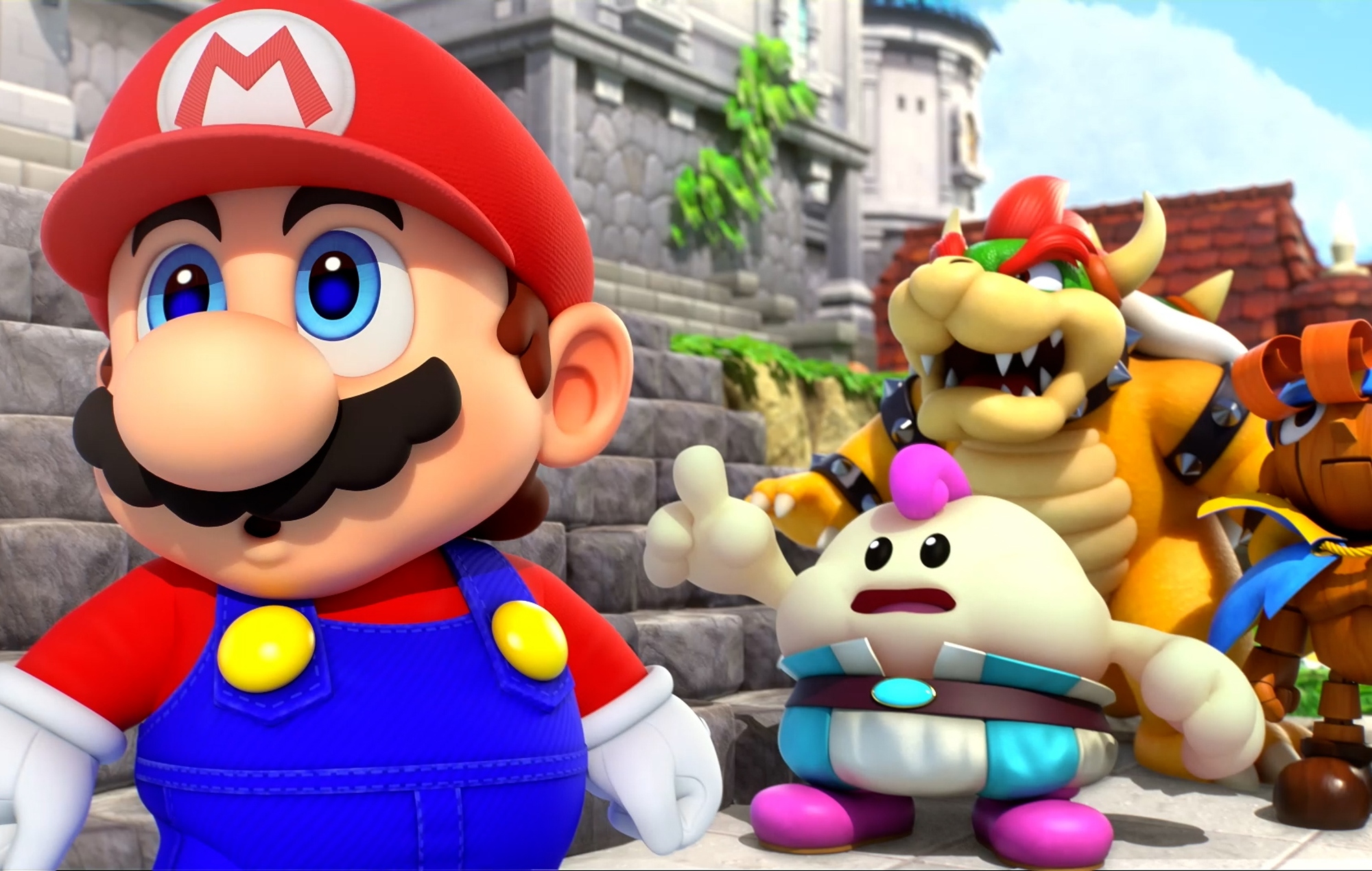
Nintendo and SEGA have been teaming up with the Olympics for several years now in the popular Mario & sonic in the Olympic Games series, but a new report claims the International Olympic Committee has abandoned the series in favor of new deals in eSports and NFTs.
According to Eurogamer“A veteran behind the series,” Lee Cocker, told the outlet that the IOC chose not to renew its license with SEGA and Nintendo, letting it expire in 2020. “They wanted to look at other partners and NFTs and eSports,” Cocker told Eurogamer. “Basically, the IOC wanted to bring [it] turn inward and look for other partners so they could get more money.”
Mario & Sonic at the Olympic Games is a series that has been running since 2008, with six main games covering the regular and Winter Olympics. In the games, players could control various characters from the Mario and Sonic franchises and compete in Olympic sporting events.
It’s no secret that NFTs are a big part of this year’s Paris 2024 Olympics. Olympics Go! Paris 2024 is a mobile and mobile-connected game your site states that players can “join the excitement of the Paris 2024 Olympic Games with nWay’s officially licensed, commemorative NFT Digital Pins collection honoring Paris 2024!”
As for eSports, Saudi Arabia will host the ESports Olympic Games in 2025. This is part of a partnership with the Saudi National Olympic Committee (NOC) that is expected to last for the next 12 years and is expected to feature regular events.
IOC President Thomas Bach said: “By partnering with the Saudi NOC, we also ensure that Olympic values are respected, in particular with regard to the game titles on the programme, the promotion of gender equality and the engagement with young audiences who are embracing esports.”
In other news, Someone claimed they’re suing Bandai Namco because Elden Ring is too difficult.
-
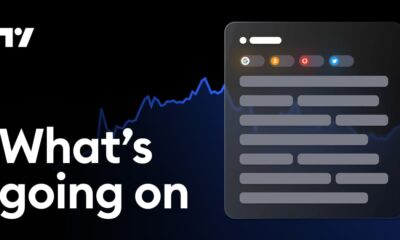
 News11 months ago
News11 months agoMore Crypto AI Alliances Emerge Following $7.5 Billion Token Merger — TradingView News
-
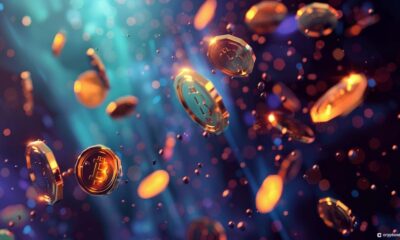
 News11 months ago
News11 months agoOver 1 million new tokens launched since April
-
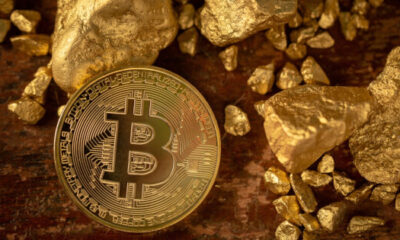
 Memecoins9 months ago
Memecoins9 months agoMemecoins dominate major derivatives in terms of open interest | Flash News Detail
-
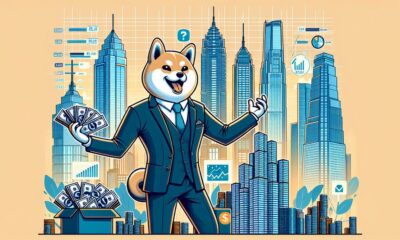
 Altcoins11 months ago
Altcoins11 months agoAltcoin Investments to create millionaires in 2024
-
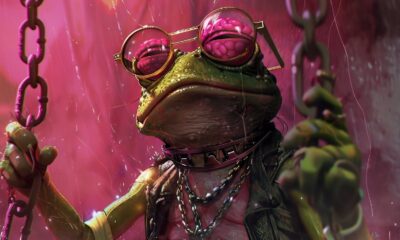
 News9 months ago
News9 months agoInvest Now: The Hottest New Cryptocurrencies of August 2024 That Could Skyrocket
-
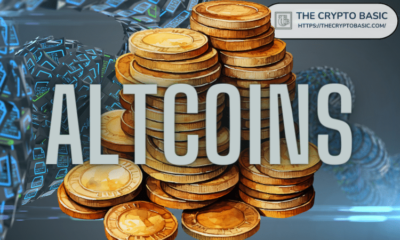
 Altcoins9 months ago
Altcoins9 months agoOn-chain data confirms whales are preparing for altcoin surge with increased buy orders
-
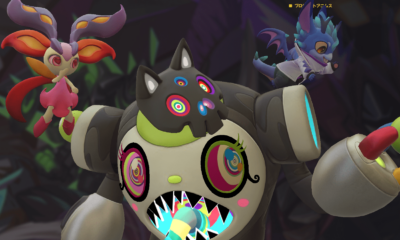
 NFTs9 months ago
NFTs9 months agoRTFKT Announces Project Animus Reveal, Launches Egg Unboxing Event Amid Mixed Reactions | NFT CULTURE | NFT News | Web3 Culture
-
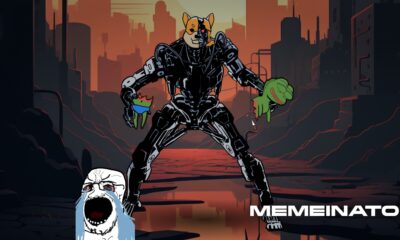
 Altcoins9 months ago
Altcoins9 months agoHot New Altcoin: Memeinator’s Price Upside Potential in July
-
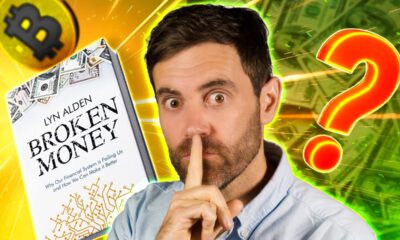
 Videos12 months ago
Videos12 months agoMoney is broke!! The truth about our financial system!
-
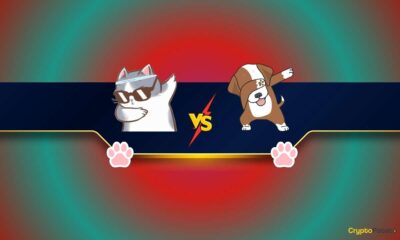
 Memecoins11 months ago
Memecoins11 months agoChatGPT Analytics That Will Work Better in 2024
-
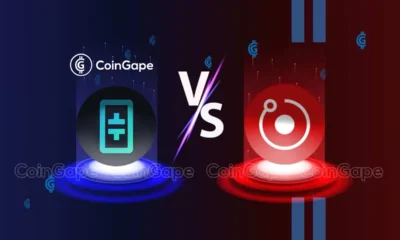
 Altcoins11 months ago
Altcoins11 months agoRender vs. Theta; Which DePIN Altcoin to buy in May
-
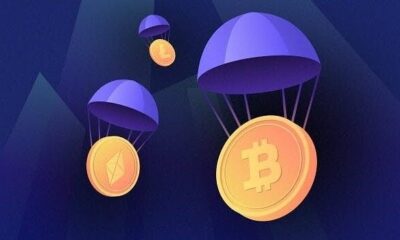
 News10 months ago
News10 months ago5 Crypto Airdrops After Notcoin to Watch Out for in June 2024





